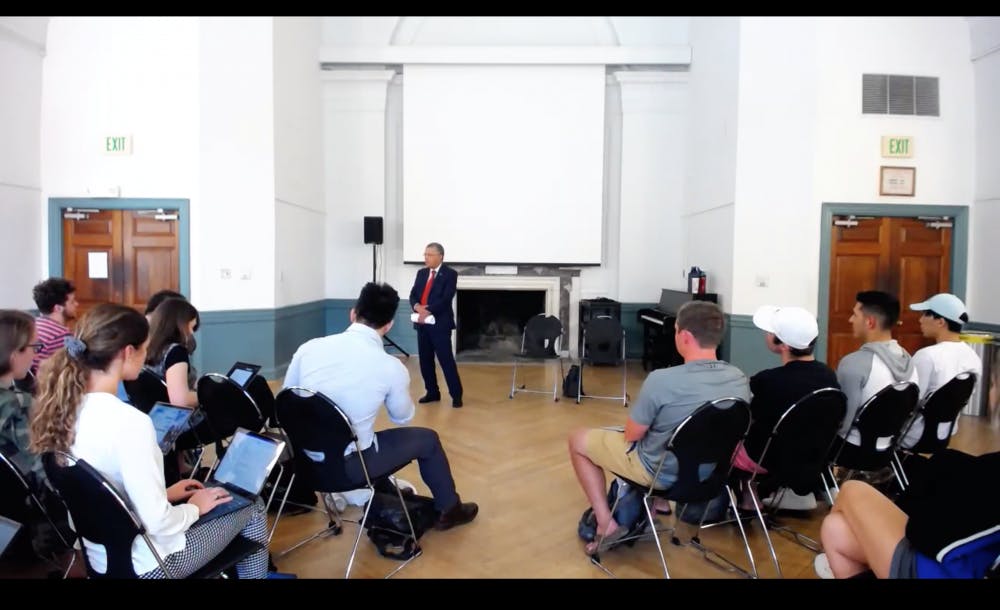Carlos Veiga, Cape Verde’s ambassador to the United States, gave a talk titled “The African Continental Free Trade Area and CPLP Countries” on Monday in Levering Hall. The talk was part of the Portuguese Program Fall Speaker Series and took place in the form of an informal question-and-answer session.
Veiga explained that the Community of Portuguese Language Countries (CPLP) is an international organization that consists of nine countries, including Angola, Brazil, Cabo Verde, Guinea Bissau, Mozambique, Portugal, São Tomé e Príncipe, Timor Leste and Equatorial Guinea.
“These nine countries are linked by the Portuguese language, their cultures and history,” Veiga said. “They take advantage of their assets to be more influential in the international market.”
According to Veiga, the CPLP countries work with many other countries that hold special observer relationships with them, citing the Czech Republic, United Kingdom, Italy, Turkey, Japan and Senegal. These countries may not qualify for full membership in CPLP, but choose to join in a special observer capacity to promote international economic and social cooperation.
The group also has hundreds of member foundations, universities, study centers and civic societies that advise CPLP members.
He explained that although the member countries have strong political and cultural relationships, they often have weaker economic relationships. He stated that the economic relations between African countries are comparatively weak because many of them are underdeveloped, raising barriers to their economic integration.
Veiga emphasized, however, that recent initiatives mean that these circumstances will change in Africa.
“This year, a new continental free trade area has been established in Africa, which will increase the economic cooperation among African countries. As a result there will be more trades and investment in African countries,” he said. “This common African market will be one of the biggest in the world.”
Veiga also pointed out how political systems have an impact on a country’s economic growth.
“Cape Verde became independent in 1975 from Portugal,” he said. “The single-party system of Cape Verde has changed to a democratic government. Values of democracy, good government, human rights and the rule of law must be adopted by the head of states. After changing our political system, our economy will continue to grow.”
Some attendees expressed that the talk was particularly informative considering they had not heard of CPLP prior to this event.
Senior Kristen Petersen explained that her knowledge of the relationship between Cape Verde and Portugal was limited to the fact that Cape Verde was settled by the Portuguese.
Petersen stated that improving the connections between the more economically developed countries and the less established in the CPLP would benefit the overall standing of the organization. However, she stated that she did not fully understand the purpose of having non-member countries in the organization.
“I don’t fully understand why the U.S. applied as an observer or an advisory group for the CPLP,” she wrote.
Veiga stressed the need to create a suitable environment for investment in the members of the CPLP located in Africa, as many of them are ranked as having the lowest productivity in agriculture, services and transportation globally.
He suggested that due to robust population growth, Africa’s working-age population will soon exceed that of the rest of the world combined, thus facilitating faster growth. Veiga emphasized that he sees enormous potential for Africa’s growth despite systemic challenges and limited infrastructure.





